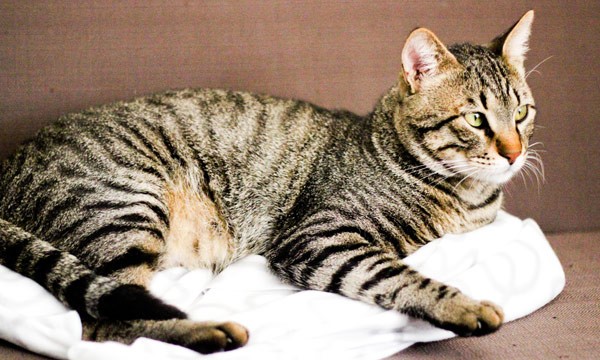By Charlotte Webster-
An animal charity has revealed that more than two million cats remain unchipped. The legislation, effective from Monday, mandates that every pet cat must be microchipped before the age of 20 weeks.
The new law aims to help reunite thousands of lost pets with their owners and deter pet theft. Ministers believe that by making microchipping mandatory, it will be easier to track and return lost or stolen cats.
However, data from Cats Protection, a leading animal charity, shows that out of the estimated nine million pet cats in England, up to 2.2 million are still not chipped.
Owners who fail to comply with the new regulation will be given 21 days to have their cat microchipped. Failure to do so could result in a fine of up to £500. The charity’s research indicates that a significant portion of cat owners have yet to microchip their pets for various reasons.
More than one in four owners (26%) believe that microchipping is unnecessary because their cats do not venture outdoors. Additionally, about one in seven (14%) owners feel that their cats are adequately identifiable by their collars.
The introduction of this law marks an important milestone in the ongoing efforts to protect and care for the nation’s beloved pets.
Microchipping typically costs between £20 and £30, which some owners might find prohibitive. However, the cost is a small price to pay compared to the potential benefits of having a lost pet returned safely.
The microchip, a small electronic device about the size of a grain of rice, is implanted under the cat’s skin and contains a unique identification number. This number can be read by a scanner and matched to the owner’s contact details stored in a national database.
The move to make microchipping compulsory follows similar regulations for dogs, which have been in place since 2016.
The success of the dog microchipping program in reuniting lost dogs with their owners has paved the way for extending the requirement to cats. The initiative is part of a broader effort to improve animal welfare and reduce the incidence of pet theft, which has been on the rise in recent years.
According to recent studies, pet thefts have surged during the COVID-19 pandemic, with criminals taking advantage of the increased demand for pets. Microchipping is seen as a deterrent to theft, as it makes it easier to prove ownership and track stolen animals.
Despite the apparent benefits, the new law has faced some criticism. Some owners argue that indoor cats are less likely to get lost and therefore do not need to be microchipped. Others believe that collars with identification tags are sufficient. However, collars can break or be removed, while microchips provide a permanent form of identification.
Cats Protection has been actively encouraging owners to microchip their pets, emphasizing the peace of mind it brings. “Microchipping is a simple and effective way to ensure that if your cat gets lost, you have the best chance of being reunited,” said a spokesperson from the charity.
The initiative represents a significant step forward in animal welfare, aiming to ensure that lost cats are returned to their homes and reducing the risk of pet theft. While the initial outlay for microchipping may be a deterrent for some, the long-term benefits of having a permanent means of identification for pets far outweigh the costs.




